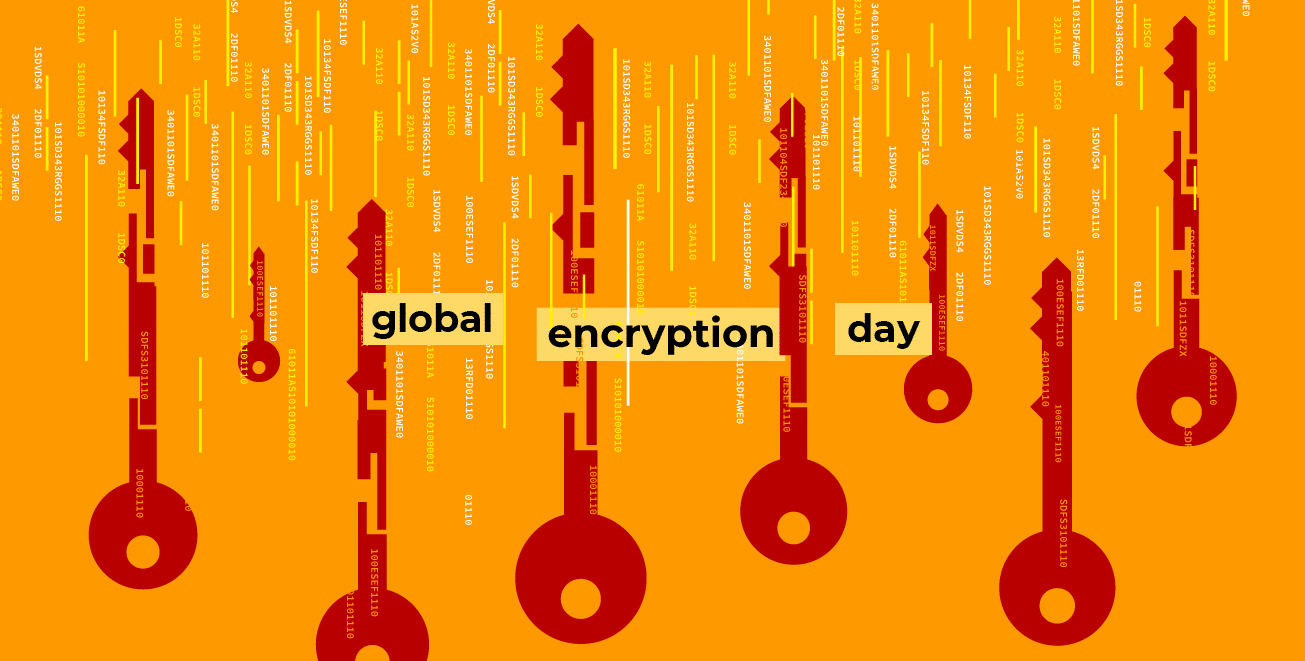When we fight for encryption, we fight for human rights. It enables us to stay safe online, and communicate privately and freely. Yet governments keep pushing to undermine it, and Apple’s plan to bypass encryption is an alarming sign of private sector capitulation to this pressure. So today, the inaugural Global Encryption Day, we are highlighting four strategies to help human rights advocates defend encryption and protect our privacy, security, and freedom of expression.
1. Share the human story
Encryption is a life or death issue. As cases from Access Now’s Digital Security Helpline show, real people are hurt when governments or companies undermine encryption. They are human rights defenders, LGBTQ+ activists, refugees and migrants, dissidents, journalists, and others who need encrypted channels for physical safety and the capacity to do their important work.
As security expert Bruce Schneier notes, “Every time you use encryption, you’re protecting someone who needs to use it to stay alive.”
2. Counter encryption myths
Creating backdoors, or otherwise weakening encryption, does not enhance safety, protect users, or preserve national security. Yet a number of governments around the world, such as India, Brazil, and the E.U., are enacting anti-encryption laws based on these myths. This includes the powerful “Five Eyes” intelligence alliance — Australia, Canada, New Zealand, the U.K., and the U.S.
Our recent report, Policy brief: 10 facts to counter encryption myths, provides fact-based rebuttals to the most common arguments for weakening or bypassing encryption. It’s aimed at helping encryption advocates explain why encryption is crucial for protecting human rights, bulwarking the economy, preserving democracy, and ensuring national security.
3. Join global calls to action; coordinate and act, locally and globally
Global trends that threaten privacy and free speech have local impact — and local calls to protect these human rights reverberate across borders. When one government implements a problematic encryption policy, another is quick to follow suit. We therefore encourage participation in coalitions like the Alliance for Encryption in Latin America and the Caribbean (AC-LAC), and joint calls to action, such as the Global Encryption Day Joint Statement, to defend encryption. Together we can send the message that when governments attack encryption, we will unite to protect it.
International organizations such as the United Nations can also play an important role in exerting pressure on national governments to protect human rights. As part of the effort to highlight the impact of eroding digital security on human rights defenders, we are co-sponsoring a U.N. General Assembly event today, Uncovering the Iceberg: The Digital Surveillance Crisis and Threats to Human Rights Defenders. We hope you join us to help increase awareness of invasive surveillance, positively shape policy debates, and facilitate state use of U.N. forums for supporting encryption and limiting surveillance.
4. Pressure the private sector to ensure our online safety
The private sector has a duty to prevent human rights abuses. That means tech companies and service providers have a responsibility to defend our privacy, security, and ability to communicate freely without fear of being watched. Not only must they push back against government mandates that would undermine or circumvent encryption, but they must also refrain from implementing any technological or policy measures that would have the same result. When they fail to do this, as Apple plans to do, it not only puts our rights at risk, it encourages governments to see encryption as roadblock to online safety, when it is just the opposite.
Together we must continue to demand that companies like Apple incorporate in-depth consultation with civil society as a prerequisite for rolling out technological changes that impact human rights. Only by hearing directly from individuals impacted by such changes, and vulnerable communities in particular, will they understand the real-world impact. The recent Electronic Frontier Foundation convening on Apple and encryption is an excellent example of diverse stakeholder groups painting a realistic picture of such an impact.
We hope these resources are helpful in your fight to defend encryption and secure the safety of those who are especially in need of its protections. We’re stronger when we fight together. Please reach out to us if you have questions or would like to collaborate.
